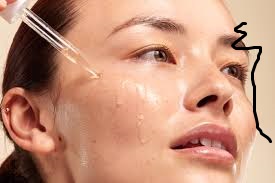While a balanced diet is the best way to get essential nutrients, supplements can help fill any gaps and support skin health, especially in winter:
- Vitamin C: Stimulates the production of collagen and gives antioxidant effect. But if you are not getting enough of these nutrients from your plate, then a supplement is might be in order.
- Vitamin E: One of the most effective antioxidants that assist in repairing damaged skin and preventing future harm. It is present in nuts, seeds and green leafy vegetables.
- Omega-3 Fatty Acids: Criticcal for the integrity of skin barrier and can decrease inflammation. You should take omega 3 supplement if you are not consuming enough fatty fish and nuts.
- Vitamin D: Very important to the body and skin health. It is also important to point out that during the winter it is cold and it is difficult to get enough sun so probably you need to take vitamin D.
- Biotin: Nutrients that help strengthen skin, hair as well as the nails. Can be found in such products as eggs, nuts, whole grain products and cereals or in the form of supplements.

Environmental Factors
Protecting Skin from Wind and Cold
Cold weather affects the skin in many ways during winter seasons. Protecting your skin from the cold and wind can help prevent dryness, irritation, and damage:
- Dress Appropriately: Have a scarf, gloves, and hat, etc. that cover your skin to protect it from the ravages of the cold wind.
- Layer Up: This is especially so because layers will provide you with the insulation required to stay warm together with protecting your skin from drastic temperatures changes.
- Use Barrier Creams: Wear protective creams or lotions on the parts of your body that you cannot cover such as your face and hands.
– Recommended Products: Aquaphor Healing Ointment – Vaseline Petroleum Jelly.
Indoor Heating and Humidity
Indoor heating which most of the houses use makes the air dry hence causing dry skin and skin irritation. Here are some tips to maintain a healthy indoor environment:
- Use a Humidifier: It is also important to introduce moisture in your home to avoid skin drying up. Indoor relative humidity should be maintained between 40 and 60 percent.
- Stay Hydrated: Make sure you stay hydrated by drinking water all day long to ensure the skins moisture is at an optimal level.
- Limit Hot Showers: Hot water on the skin can also remove the skin natural oils which helps in the skins natural protection. Take a warm shower and do not use soap or any harsh product on your skin.
- Moisturize Regularly: Bathe daily and use a moisturizer soon after taking a bath and during the day to ensure that the skin stays moisturized.
– Recommended Products: CeraVe Moisturizing Cream, Eucerin Advanced Repair Lotion.
- Ventilate Your Home: It should be well ventilated in order to reduce the chances of stagnant air being very dry.
If you follow the aforementioned lifestyle tips in your daily practice, you will retain heathy, hydrated, and elastic skin during the winter period. I just want to remind you that diet, nutrition, and terms of environment should also be taken into consideration to obtain skin health results.